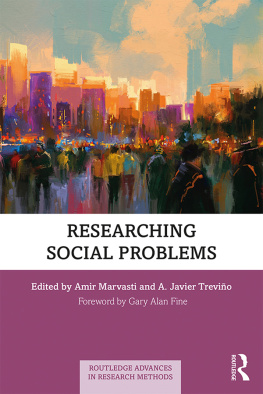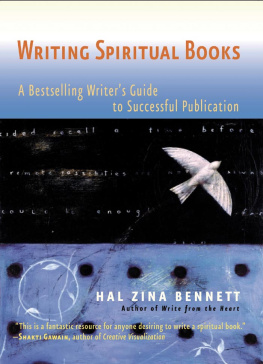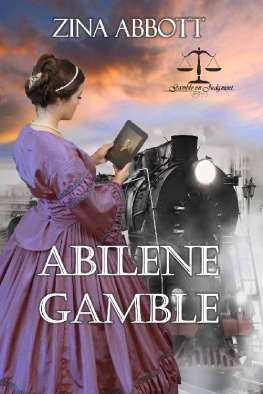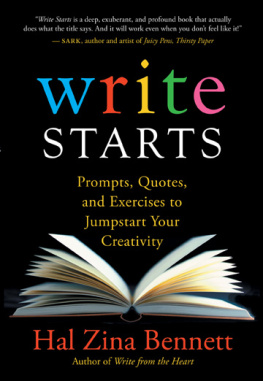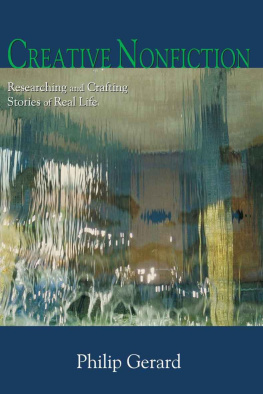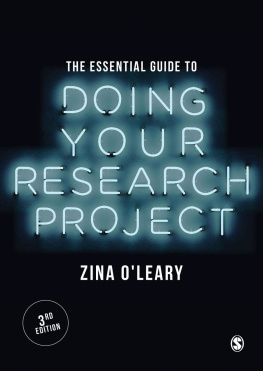Zina OLeary 2005
First published 2005
Apart from any fair dealing for the purposes of research or private study, or criticism or review, as permitted under the Copyright, Designs and Patents Act, 1988, this publication may be reproduced, stored or transmitted in any form, or by any means, only with the prior permission in writing of the publishers, or in the case of reprographic reproduction, in accordance with the terms of licences issued by the Copyright Licensing Agency. Inquiries concerning reproduction outside those terms should be sent to the publishers.
| SAGE Publications Ltd
1 Olivers Yard
55 City Road
London EC1Y 1SP |
SAGE Publications Inc.
2455 Teller Road
Thousand Oaks, California 91320 |
SAGE Publications India Pvt Ltd
B-42, Panchsheel Enclave
Post Box 4109
New Delhi 110 017 |
British Library Cataloguing in Publication data
A catalogue record for this book is available from the British Library
ISBN 1 4129 0194 4
ISBN 1 4129 0195 2 (pbk)
Library of Congress Control Number: 2005901271
Typeset by C&M Digitals (P) Ltd., Chennai, India
Printed on paper from sustainable resources
Printed in Great Britain by TJ International, Padstow, Cornwall
Acknowledgements
First and foremost I want to thank all of the students, colleagues, and friends I have worked with over the past ten years at both the University of Western Sydney and further afield. I have learned a tremendous amount from our shared experiences. A special note of thanks to Brent Powis for his willingness to review each and every chapter of this book.
Id also like to thank Patrick Brindle and Vanessa Harwood at Sage. Their professionalism, responsiveness, and belief in my down to earth approach is appreciated more than they might realize.
My parents also get a mention. Thanks dad, for being the inspiration for the start of as well as being an inspiration in so many other ways. And thanks mom, for being a hell of a role model when it comes to knowing how to cut to the chase and get to the heart of an issue.
Finally, Id like to acknowledge my daughters, Dakota and Scout, who give me tremendous joy every day, and also dont mind seeing their names in print.
Researching Real-World Problems
Chapter Preview
We are at the very beginning of time for the human race. It is not unreasonable that we grapple with problems Our responsibility is to do what we can, learn what we can, improve the solutions, and pass them on.
Richard Feynman
GRAPPLING WITH PROBLEMS
Youve probably already picked up on this, so I dont think Im telling you anything new, but in case you hadnt noticed the world is not a perfect place. Problems abound.
Governments are riddled with problems in fact, governments themselves are a problem! The environments a mess. Our planet is turning into one giant greenhouse, theres salinity in the soil, and we dont have enough clean/safe drinking water to go around. In fact, we cant find a way to distribute money, food, or medicine so that everyone with a need can get a share. Health care and education are far from adequate and/or equitable, and from the global arena to the local playground we cant seem to overcome racism, sexism, prejudice or discrimination. Domestic violence and child abuse occur daily in every corner of the world, and child pornography is a multi-billion dollar industry.
We also have to deal with the threat of terrorism as well as our fear of that threat. We poison ourselves daily with toxic chemicals from alcohol, cigarettes, factories and automobiles. Children are starving some due to war and political upheaval some from mass media-induced anorexia. Meanwhile schools struggle with violence, drugs, sexual and racial tension.
And dont get me started on the workplace Did you know that more than 5,000 people die every single day due to work-related accidents and disease (International Labour Organization 2005)? Meanwhile, we survivors deal with significant stress from the boss, massive bureaucratic inefficiencies, gross inequities, and the need to balance work with a thousand other responsibilities.
Yep there are a lot of real-world problems we can grapple with.
From problems to problem solving
Now that may sound pretty depressing, but dont despair. We may live in a world plagued by problems but we also live in a world dedicated to learning, changing, improving and evolving. Yes, problems abound but so does problem solving and problem solvers. We are part of a world surrounded by people who work in government, in education, in health care, in big business, in small business, in the community, in academia etc., all dedicated to doing their part to ease, fix and alleviate problems. In fact, we live in a world where most struggle on a daily basis to solve problems in order to make the world, or at least their world, a better place. So okay, we may never live in a problem-free world, but at least we can say we live in a world where alleviating problems will always be high on the agenda.
THE ROLE OF RESEARCH IN PROBLEM SOLVING
So what is the role of research in problem solving? Well, research is the process of gathering data in order to answer a particular question(s); and when researching real-world problems the questions asked generally relate to a need for knowledge that can facilitate decision-making, thereby aiding problem resolution.
Does this then make research the answer to our problems? Well unfortunately no but research can be an instrumental part of problem resolution. Research can be a key tool in informed decision-making. It can be central to determining what we should do, what we can do, how we will do it, and how well we have done it. Research may not be the answer to our problems, but it can supply some of the data necessary for us to begin to tackle the real-world problems that challenge us all.
Take change management literature as an example. It will clearly tell you that in order to make change happen in order to solve problems you need to:
- understand the problem including all the complexities, intricacies and implications
- be able to find workable solutions vision futures, explore possibilities
- work towards that solution implement real change
- evaluate success to find out if problem solving/change strategies have been successful
If you think about it, all of these activities can be, and should be, informed by research. Research can be the key to finding out more, that is, uncovering and understanding the complexity of real-world problems. It can also help us in our quest for solutions. It can be key to assessing needs, visioning futures, and finding and assessing potential answers. It can also allow us to enact and learn from change through use of action research strategies. And finally, evaluative research can be central to monitoring and refining our attempts at problem solving. In short, research may not be the answer but its certainly a tool that can help us move towards problem resolution.






